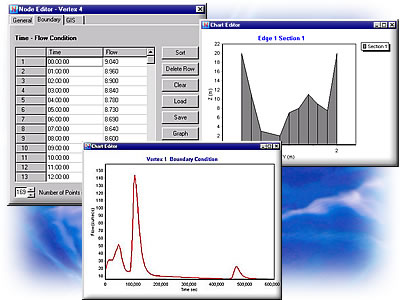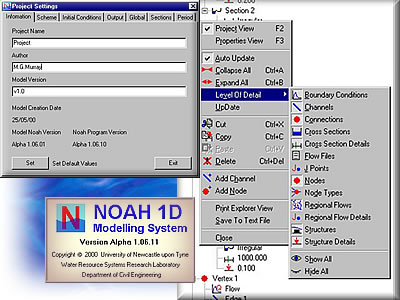The NOAH Windows Workbench
NOAH has a full Windows based workbench for fast data entry, checking and editing
Open and closed channel systems containing loops, branches and floodplain storage or conveyance can be modelled
Numerous hydraulic objects including culverts, weirs, pumps, losses and various boundary types are supported
NOAH's unique Object Oriented programming technology enables real time animation of results during flow simulations


